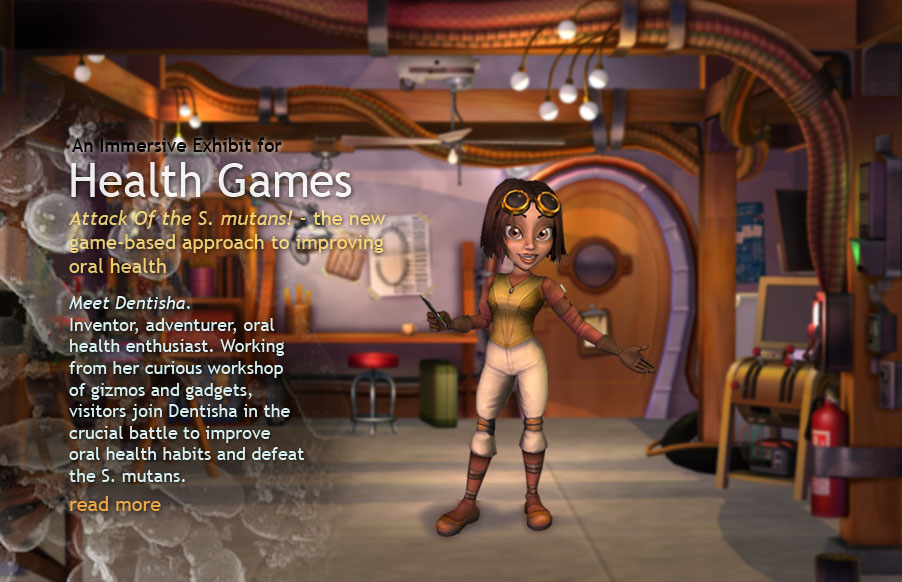Is Gaming Theory a breakthrough in healthcare or is gamification just another marketing buzzword trying to persuade healthcare execs to drop a bundle on something new and cool? The answer is probably a little of both.
 Gaming may have made it into your personal healthcare regimen without you even realizing it. If you track your diet on your mobile phone or tablet, use a program to track and score your paces walked or calories burned or workout using something like a Wii Fit – then you are a participant in the gamification of healthcare.
Gaming may have made it into your personal healthcare regimen without you even realizing it. If you track your diet on your mobile phone or tablet, use a program to track and score your paces walked or calories burned or workout using something like a Wii Fit – then you are a participant in the gamification of healthcare.
The Robert Woods Johnson Foundation invests in a variety of health gaming enterprises as part of their Pioneer Portfolio Health Games Research. The stated goal of the portfolio is “promoting fundamental breakthroughs in health and health care through innovative projects, including those from nontraditional sources and fields.” According to Debra Lieberman, program director, Health Games Research, “games are where people live. They can engage people in powerful ways and can motivate and support behavior change, especially when they are designed on the basis of well-researched strategies.” In the past 5 years, Health Games Research has awarded 21 grants for research into the “fundamental principles of effective health game design that increase players’ physical activity or help improve their healthy behaviors or self-care.” This sounds like more than a marketing buzzword.
Gaming can be as simple as adding a scorecard to daily activities to motivate particular behaviors or as complex as creating virtual realities to build drama around mundane activities – and thereby motivate particular behaviors. Are you more likely to stand in your living room doing deep knee-bends by yourself or in competition with a friend skiing down a virtual black diamond ski trail? How much more likely are you to take the exercise seriously if “winners” are posted via social media?
Is Gaming a Game Changer?
The availability of research funding for of games for health behavior change, professional development, and education has fostered parallel development of mobile health or mHealth technologies and sometimes the two terms are confused. While some health games are mobile and some mHealth solutions involve gaming, they are two different yet overlapping disciplines. Many companies have jumped on the mHealth term, even incorrectly, because the term gamification has had some negative backlash. Ironically, the reality of health gaming is almost universally positive: essentially, trying to make preventative care and treatments something that a patient will want to do rather than something that it “prescribed.” Consider just a few applications:
- HopeLab in Californial has developed Zamzee, to combat childhood obesity. With Zamzee children wear a small device to track their physical activity. Developers say the game helps participating children to be 30% more active than non-participants playing games, accumulating points, winning and using points to buy goods as goals are met.
- A randomized controlled trial of the Super Nintendo game Packy & Marlon, released in 1994, found that children and adolescents with Type 1 diabetes who had the game at home for six months improved their self-management behaviors and reduced their diabetes-related urgent care and emergency visits by 77 percent.
- And so many more can be found on the Games For Health YouTube channel along with a great deal of pure silliness.
Using competition, peer encouragement, social media and well… distraction to encourage healthy behaviors seems like a bit win for healthcare. However there are also challenges:
- Healthcare information is super-private. How can healthcare organizations encourage or even justify games that involve competing against other people (or patients) and still protect privacy? It may be okay for adults to forego their privacy for the benefits of the game but how does this apply to children?
- All games are not created equal and many are currently entering the market. Healthcare execs need to do careful examination of the credentials of companies claiming to be proven solutions. The Health Games Research database is a good place to start.
- Cultural concerns. Competition and score-incentives are more associated with Western culture and may not be equally effective across all groups –even within the US alone.
Way back in 1993, J.M. McGinnis and W.H. Foege published “Actual Causes of Death in the United States.” This research proposes that health behavior such as over-consumption of food, lack of exercise, smoking, and stress are responsible for approximately 40–50 percent of morbidity and mortality. In the past 20 years that trend has, if anything increased. In Real Life (IRL) obesity, diabetes, asthma and smoking are more deadly than virtual warriors, dragons or alien invasions – but if playing in the virtual world can improve healthcare IRL – I’m all for it.



